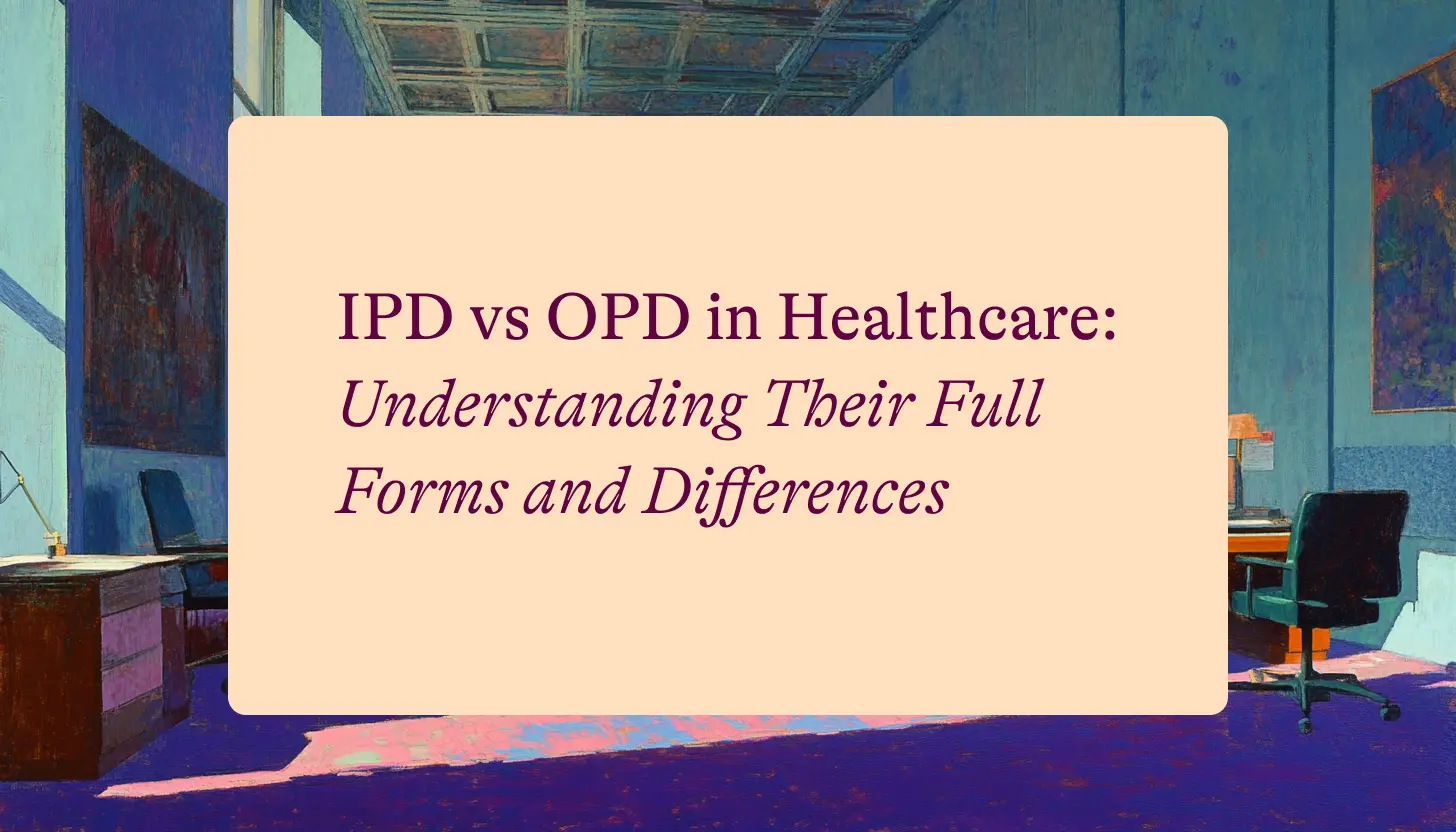Ever wondered what the process of porting your health insurance will look like? Is it just a time-consuming hassle? Well, this blog is here to provide you with an overview of health insurance portability. Read on if you're considering moving your health insurance policies to another company or want to explore the benefits of health insurance portability!
What Is Health Insurance Portability?
Switching jobs can be daunting, but keeping your health insurance portability in mind is essential. If you change jobs, you can keep your health insurance. However, health insurance policies are sometimes different-for-same in coverage. For instance, policies may not cover pre-existing conditions or prescription medications. So, if you decide to port your coverage, do it as soon as possible to avoid any missed benefits. With health insurance portability in mind, you can now easily plan for the future!
How To Apply For Health Insurance Portability?
Health insurance portability is a policy that allows you to do just that. Applying for this policy as soon as you're eligible is crucial because it can save you money on your premiums. There are two types of health insurance portability: automatic and non-automatic. Automatic coverage transfers the day after an employee leaves their job, while non-automatic range takes more time - up to 60 days - before it kicks in. So, if you're thinking of switching jobs soon, apply for a health insurance portability policy as quickly as possible. Do you have any questions about health insurance portability? Let us know in the comments below.
Documents Required For Porting A Health Insurance Policy
If you're unhappy with your health insurance provider, now is the time to port your insurance to a new company. You must provide proof of residency (a driver's license or passport), income (last three months' pay stubs), and an ID card. The process takes up to 10 days and depends on your state. Once ported, make sure you shop for the best rates available - many options are available nowadays!
Can I Transfer My Health Insurance To Another Insurance Company?
When it comes to health insurance, it's essential to do your research. Some insurance companies don't allow health insurance transfers, which can be a significant inconvenience. Additionally, there might be better options than porting health insurance for you, and before deciding, discussing the options with a counsellor or advisor is best. Once you've decided which insurance company is best for you, start transferring your policy!
Advantages & Disadvantages of Health Insurance Portability:
There are many benefits and disadvantages of health insurance portability. For some, it can be a great way to switch plans or doctors without waiting or facing long waiting periods.
However, health insurance portability also has disadvantages, such as higher premiums and fewer benefits options. It's essential to weigh the pros & cons before deciding on health insurance portability.
Benefits Of Porting Health Insurance Policy
Porting your health insurance policy to a new company has many benefits. You can save money on premiums, but you may also be able to get a better deal based on your coverage preferences and medical history. It is essential to consult with your current insurer before making the switch so that any pre-existing conditions are covered under the new plan. Finally, ensure all questions about coverage and premium payments have been answered before signing up for the policy.
Disadvantages Of Porting Health Insurance Policy
There are several reasons why porting health insurance policies may be a good idea. You can secure a lower-cost health insurance plan if you port your policy. Another advantage is that transferring guidelines often entails minimal hassle and no waiting time - making the process relatively smooth and quick.
However, there are also some disadvantages of porting health insurance policies which should not be overlooked: for example, sometimes there is a penalty levied if coverage lapses or if the policyholder changes their address without informing their insurer in advance; and finally, it can take some time before everything merges into place smoothly to avoid any hassles down the line.
Things To Remember While Porting For Health Insurance:
Before you take the plunge, you must have a good idea of what you're searching for. Do your research, and gather all the necessary paperwork - like proof of residency and income - to make the switch smoothly. If you experience any problems during the porting process, don't hesitate to reach out for help. Finally, take your time - limited spots are available each month!
Limits and Sub-limits
When it comes to health insurance portability, there are always limits and sub-limits that you need to be aware of.
1. If you remain uninsured for too long, the health insurer may impose a penalty on you, which could amount to quite a sum.
2. You will likely have to furnish proof of your insurance coverage when applying for new policies or renewing old ones-- even if this is already included in your current policy terms and conditions!
3. Certain benefits previously covered by your health insurance plan might no longer be so once you switch insurers (for example, mental healthcare). You'll have to cover these expenses yourself from now on.
4. It can often be complicated to make sense of all the ins and outs of health insurance-- get help from an expert whenever possible!
Benefits
There are various benefits of porting health insurance policies. The most significant advantage is that you will almost always get a better rate than renewing your policy outright. In some cases, you may be eligible for subsidies or other discounts on your premiums. It can take 60 days for the new approach to take effect - so don't panic if you don't see any changes immediately!
Please keep all your medical records handy if the insurance company asks for them. And lastly, bear in mind that once ported, it's essential to keep an eye on renewal dates and make sure you're porting at least six months before your current policy ends!
Premium
When it comes to insurance, porting is always a risky business. However, following the proper steps and making informed decisions can minimize the risk of loss and still enjoy premium benefits. Below are some crucial points to keep in mind when transferring health insurance:
- The premium you pay will vary depending on your current plan and coverage.
- You might have to pay a late penalty if you miss the deadline for porting in time.
- Always consult with an insurance advisor before making any decisions
- it can be costly but worth it in the end!
Conclusion
Health insurance portability is a policy that allows you to move your health insurance without losing coverage. By following the necessary steps and understanding the benefits and disadvantages of health insurance portability, you can make the switch easily.
Read through the blog for more information on health insurance portability policies and how to apply for one.
FAQ
Q. How does the portability process impact the coverage of pre-existing conditions under the new policy?
A. The portability process often allows for the coverage of pre-existing conditions under the new policy, but this can vary. Insurers typically consider the insured's health history and the coverage provided by the previous policy. It's crucial to discuss this with the new insurer to understand how they will handle pre-existing conditions post-portability.
Q. Are there any specific timeframes or deadlines that need to be met when initiating the portability process to ensure continuous coverage?
A. Yes, specific timeframes and deadlines must be adhered to for a seamless portability process. Policyholders are usually required to initiate the portability process at least 45 to 60 days before the current policy's expiry. This ensures there is enough time for the new insurer to assess the application and provide uninterrupted coverage.
Q. How do insurance companies assess the risk and decide on the premium for the ported policy, especially if the policyholder has a history of claims?
A. Insurance companies assess the risk and decide on the premium for the ported policy by reviewing the policyholder's claims history, health records, and the coverage levels of the previous policy. The new premium reflects the perceived risk, the scope of coverage, and any claims made under the earlier policy. It's essential to provide complete and accurate information during this process to ensure the premium is fairly calculated.
.avif)








.avif)
















